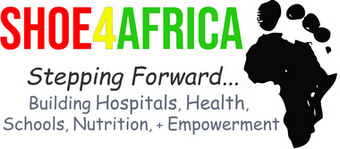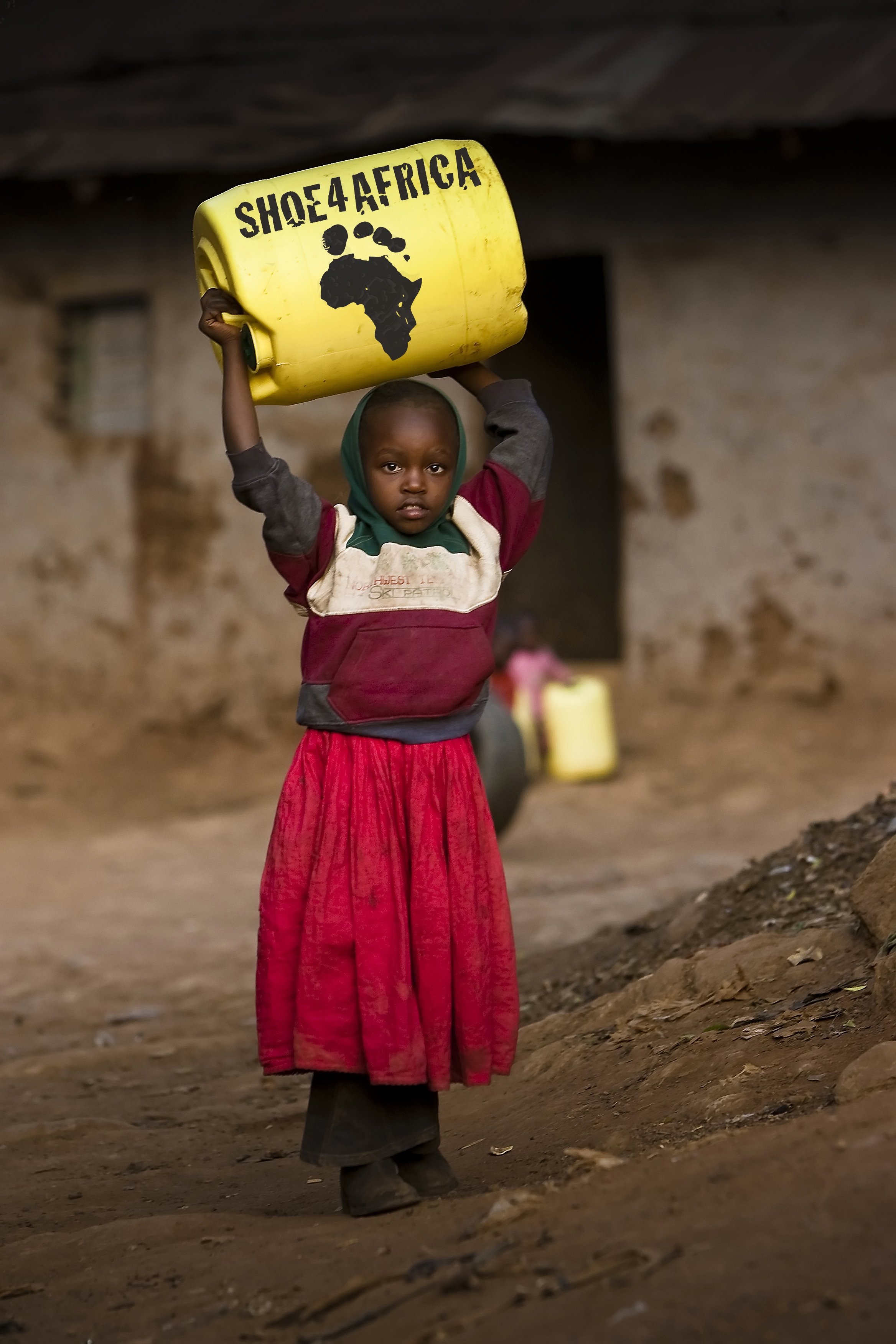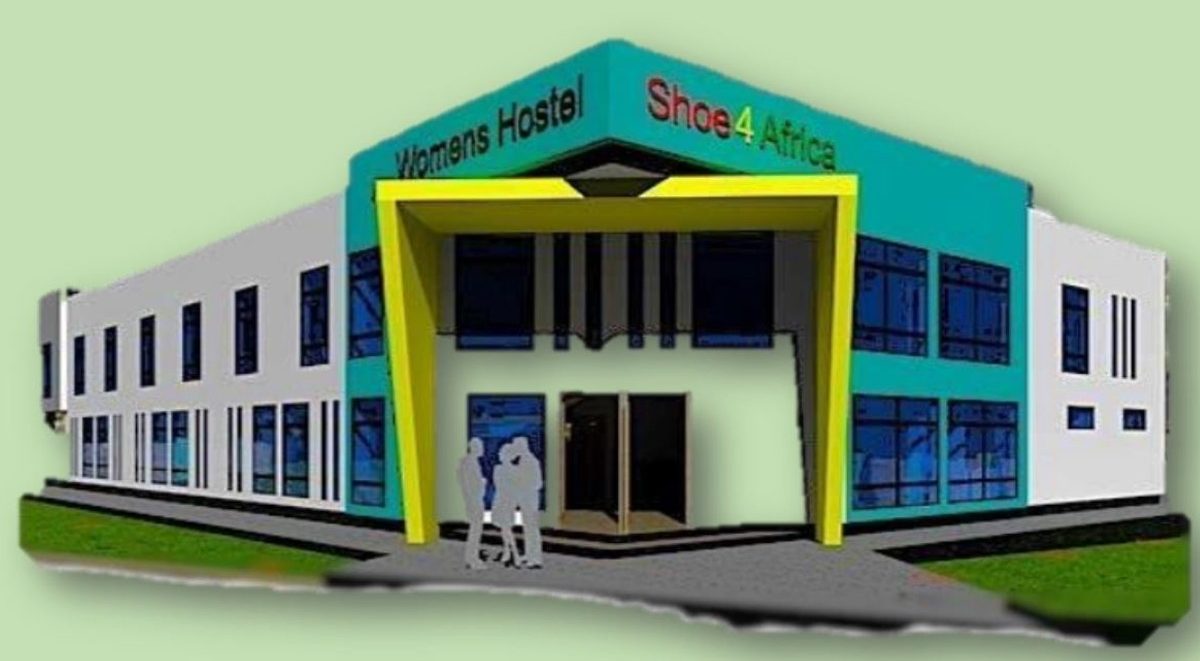
Healing Caregivers Beyond Medicine
When a child is hospitalized, it’s not just the young patient who suffers — it is the entire family, and especially the mother. In Kenya, far too many mothers are forced to make an unthinkable choice: stay in the city and fight for their child’s life, or return home because food, shelter, and survival become impossible. This heartbreaking reality is one of the leading causes of treatment abandonment, which tragically stands at 57% in pediatric cancer cases.
Our Women’s Hostel at the Children’s Health Village is a bold solution to this crisis — a space of care, dignity, and empowerment designed to ensure no mother ever has to walk away from her child’s treatment simply because she cannot afford to stay.
Thirty meters from the Children’s Cancer Hospital, and seventy meters away from the General Children’s Hospital, the location is ideal.
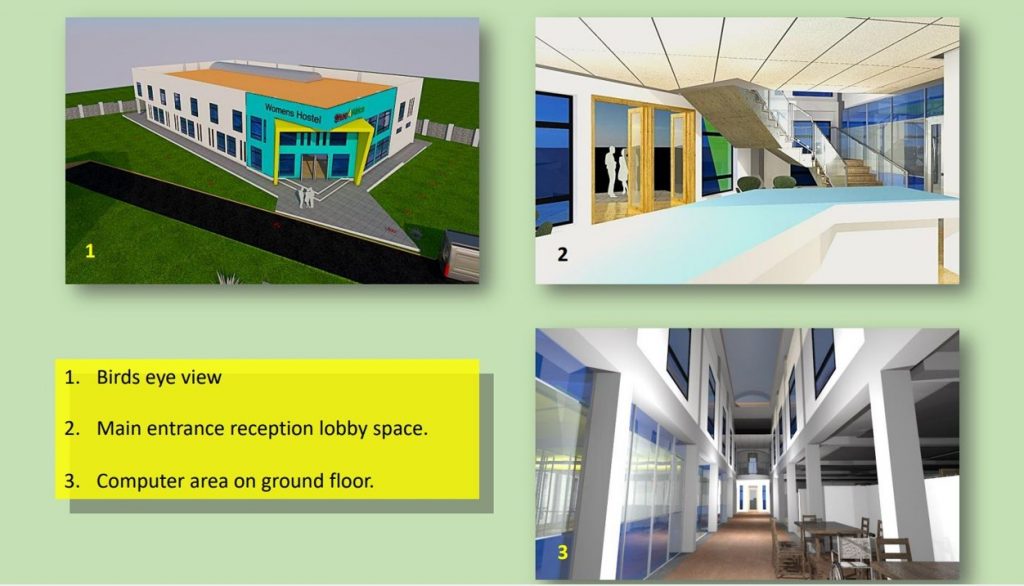
A Safe Place to Call Home
On the top floor, mothers will find secure and comfortable living quarters: six-bunk dorms, a matron’s room, showers, toilets, and essential cleaning facilities. A nurse-call system ensures that, even in the middle of the night, mothers can be reached quickly if their child’s condition changes.
On the ground floor, the hostel will offer far more than shelter. Here, mothers can gather in a warm lounge, share meals in the dining area, nurture their spirits in the library, and gain knowledge in a dedicated learning hub. An office space will also support administration and programs, keeping the hostel running smoothly.
A Path to Empowerment
This hostel is not just about surviving — it is about thriving. Women will have access to income-generating opportunities through a creative workspace where they can produce and sell handmade goods, such as greeting cards. These activities provide both financial independence for mothers and sustainable support for Shoe4Africa’s mission.
A daycare facility will also be part of the hostel, supporting mothers, residents, and hospital staff alike. This could create an additional revenue stream for the caregivers.
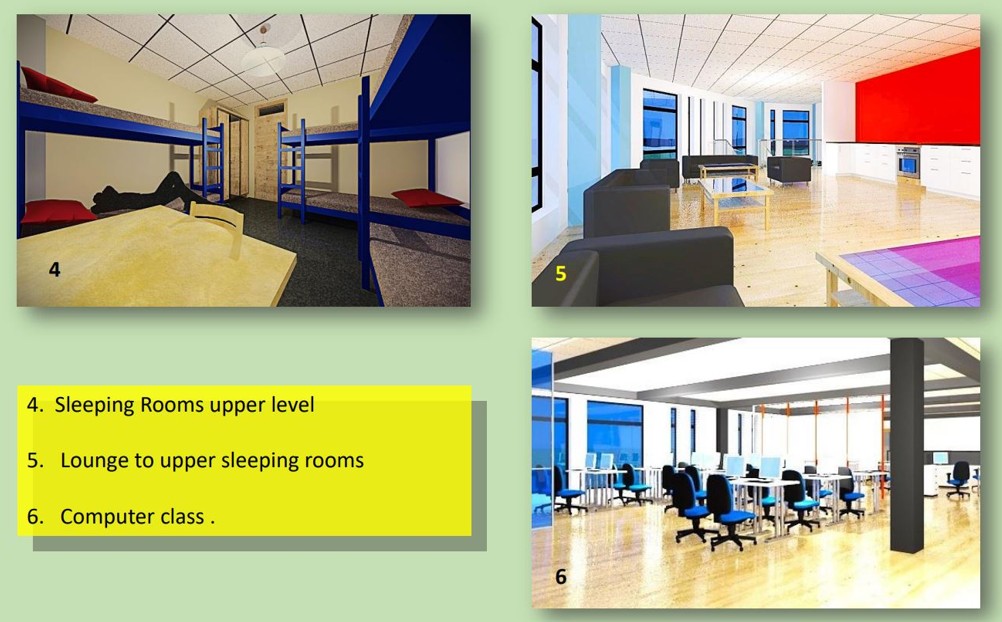
Why This Matters
Currently, many mothers sleep in hospital beds alongside their sick children — a situation that strains both medical staff and families. A situation that continually breaks our cots. During the day, others lie on the grass outside the hospital, weighed down by exhaustion and financial anxiety. Very, very few of our mothers earn a regular salary adn rely on the day to day labor of washing clothes, or the likes.
This hostel changes everything. It provides stability, dignity, and peace of mind, freeing mothers to focus entirely on supporting their child’s recovery. By addressing shelter, food, emotional support, and skill-building, the Women’s Hostel directly combats treatment abandonment, giving children a far greater chance at survival.
A Global Idea, a Local Lifeline
Friends in the U.S. often tell us how life-changing Ronald McDonald Houses have been for their families — safe havens that allowed them to stay close during treatment. Now imagine bringing that same model to Kenya, where the need is far greater, and where mothers often come from remote, rural communities with nothing but hope.
The Women’s Hostel at the Children’s Health Village is more than a building — it is a lifeline. It is a promise that no mother will ever again have to choose between poverty and her child’s survival.
With your support, we can give these mothers what they need most: a place to stay, a chance to learn, and the hope of a future.
Why Women?
Shoe4Africa is prioritizing women’s empowerment within our programs based on both empirical evidence and our organization’s long-standing commitment to addressing gender inequities in Africa. Across sub-Saharan Africa, structural and cultural biases disproportionately place caregiving responsibilities on women while limiting their access to resources, education, and leadership opportunities.
Shoe4Africa has consistently recognized this imbalance, embedding gender equity into its projects. From constructing schools that emphasize access for girls, to launching female empowerment initiatives in health and community leadership, the organization has advanced opportunities for women in alignment with global development priorities. Research consistently demonstrates that investments in women generate intergenerational benefits, improving children’s education, reducing household poverty, and enhancing community health outcomes (World Bank, Gender and Development Report, 2012; UN Women, Progress of the World’s Women, 2019–2020).
Recent data from our own facilities further underscores the urgency of this focus. During an evidence-based study at the Shoe4Africa oncology ward in July 2025, 92% of overnight caregivers for pediatric patients were female. Mothers, grandmothers, sisters, and aunts carry the overwhelming burden of care, often at significant personal and economic cost. This mirrors broader findings: the World Health Organization estimates that women provide 70% of informal health and caregiving globally, yet they are underrepresented in health leadership and under-supported in caregiving roles (WHO, Delivered by Women, Led by Men, 2019).
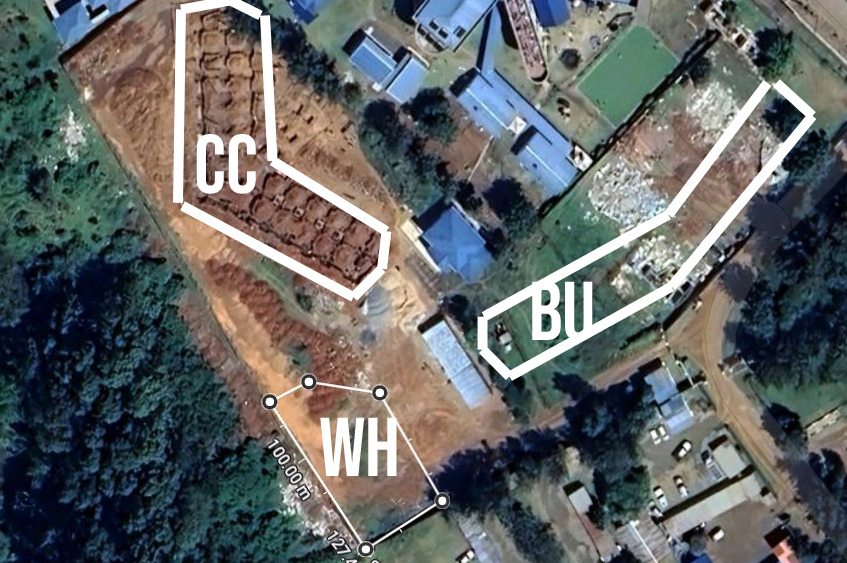
By deliberately prioritizing women in empowerment and support strategies, Shoe4Africa is addressing a demonstrable need with targeted interventions that both alleviate gender inequities and improve health outcomes for children. Strengthening the role of women caregivers is not only a matter of social justice, but also a proven pathway to maximizing the impact of pediatric health interventions (UNICEF, Gender Equality: Glossary of Terms and Concepts, 2017).
- World Bank (2012), World Development Report: Gender Equality and Development
- UN Women (2019–2020), Progress of the World’s Women
- WHO (2019), Delivered by Women, Led by Men: A Gender and Equity Analysis of the Global Health Workforce
- UNICEF (2017), Gender Equality: Glossary of Terms and Concepts
